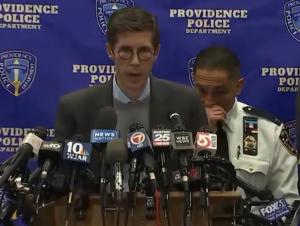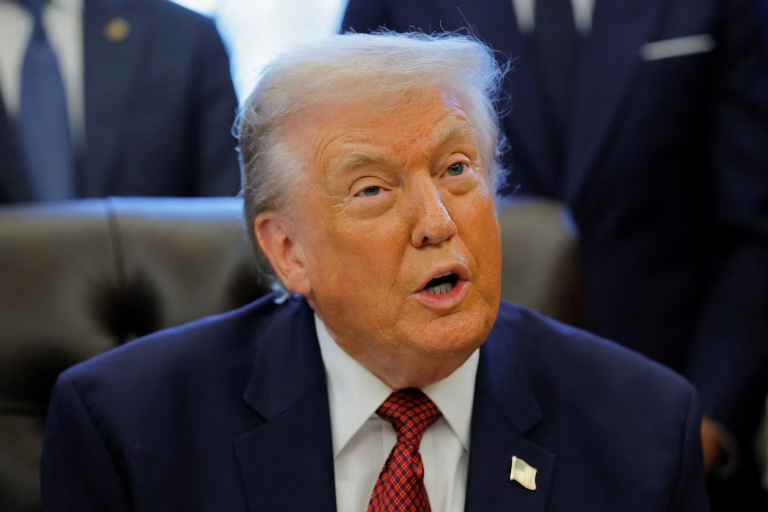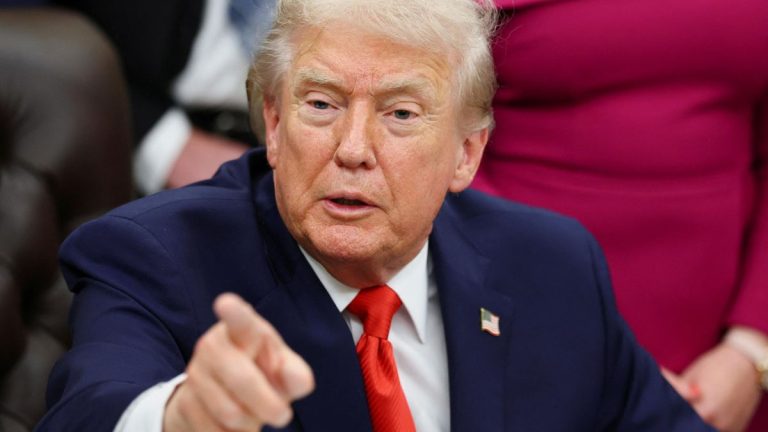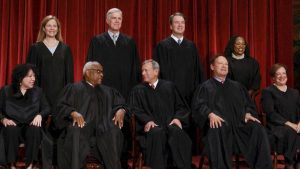After months of speculation, the U.S. Department of Justice (DOJ) has officially stated that Jeffrey Epstein never maintained a “client list,” contradicting earlier claims and ending one of the most persistent rumors surrounding the late financier’s sex trafficking investigation. The announcement marks a significant reversal from assertions made by Attorney General Pam Bondi, who had suggested earlier this year that such a document was real and ready for release.
In a statement issued Monday, the DOJ said that “no further disclosures” related to Epstein’s case would be made. The department also confirmed that the trove of remaining materials—some of which are under court seal—will remain confidential to protect the privacy of victims. The clarification effectively closes the door on one of the most controversial and politically charged narratives of recent years.
The “Client List” That Never Was
The idea of an Epstein “client list” has circulated widely since his 2019 death, fueled by online speculation and partisan rhetoric. Bondi, a prominent figure in President Donald Trump’s administration, reignited the theory in a February interview on Fox News. When asked whether the government possessed such a document, she confidently replied, “It’s sitting on my desk right now to review.”
Her remarks sent waves through social media, energizing conservative commentators and conspiracy theorists who believed that a major release of names was imminent. Bondi’s promise of transparency dovetailed with Trump’s frequent pledges to “expose everything” from prior administrations. At the time, Bondi described a “new era of openness,” claiming that the Justice Department under Trump would reveal “everything the Biden team hid.”
However, Monday’s DOJ memo told a very different story. “After extensive review, the Department has found no evidence of a ‘client list’ or any document resembling such a record,” it read. The unsigned memo, bearing the seals of both the DOJ and the FBI, emphasized that its findings were final and that releasing additional material “would not serve the interests of justice or the protection of victims.”
Promises and Backlash
Earlier this year, Bondi hosted a White House event attended by conservative influencers and online commentators, where participants received binders labeled “The Epstein Files: Phase 1 — Declassified.” Despite the dramatic presentation, the documents inside were mostly repackaged versions of court records and media reports that had long been public.
The disappointment among attendees was immediate. Online figures who had anticipated shocking revelations accused Bondi and the administration of misleading them. Far-right activist Jack Posobiec posted on X (formerly Twitter): “We were all told more was coming. That answers were out there. Incredible how utterly mismanaged this Epstein mess has been.”
In the months that followed, Bondi continued to insist that more evidence was forthcoming. She claimed that a “truckload” of materials from the FBI was being reviewed and that these documents would “finally expose the full truth.” On conservative talk shows, she accused the previous administration of hiding evidence, saying, “Sadly, these people don’t believe in transparency—or honesty.”
Yet, after an internal DOJ audit, those promises evaporated. “Only a fraction of the evidence collected would have been public had Epstein gone to trial,” the memo stated. “Much of it remains sealed under judicial order to protect victims of sexual abuse.”
White House Press Secretary Karoline Leavitt later clarified that Bondi had been referring to the Epstein case files generally—not to a specific “client list.” DOJ spokesperson Chad Gilmartin echoed that explanation, insisting there had been “no intent to mislead.”
Epstein’s Death and Renewed Conspiracy Theories
Jeffrey Epstein, once a wealthy financier with connections to global elites, died in his Manhattan jail cell in August 2019 while awaiting trial on federal sex trafficking charges. His death—officially ruled a suicide—has remained fertile ground for conspiracy theories. Despite multiple investigations confirming that no one entered Epstein’s cell area that night, rumors of foul play persist.
In the newly released video evidence, the DOJ once again reaffirmed that Epstein died by suicide. The footage, taken from inside the Metropolitan Correctional Center in New York, was presented as definitive proof. Nonetheless, the Justice Department’s confirmation reignited online speculation. “Next they’ll say Epstein never even existed,” wrote conspiracy broadcaster Alex Jones, calling the DOJ’s findings “sickening.”
Elon Musk posted a series of clown-makeup memes mocking Bondi for her earlier statements, implying that her credibility had collapsed.
The Mysterious “10,000 Videos” Claim
Bondi also stirred controversy in March when she alleged that federal investigators were reviewing “tens of thousands” of video recordings that showed Epstein “with children or involving child pornography.” She cited this as a reason for the delay in releasing new information.
However, DOJ officials later said that while they do possess digital material—some of which includes illegal imagery—it does not constitute evidence of a systematic “blackmail operation” or client ledger. The memo confirmed that over 10,000 videos and images were found but noted that “most depict criminal acts already detailed in previous court filings.”
Attorneys involved in Epstein’s and Ghislaine Maxwell’s criminal cases told the Associated Press they had never seen such a massive video collection. “There was never evidence of a trove of recordings like that,” said one former federal prosecutor familiar with the investigation. “If those existed, they would have been central to the charges.”
Court filings from civil suits against Epstein’s estate have alluded to the discovery of “sensitive materials,” but protective orders prevent disclosure of their contents. The DOJ declined to answer questions about when or how the videos mentioned by Bondi were located.
A Political Headache for the Trump Administration
The DOJ’s clarification places Bondi—and by extension, the Trump administration—in an awkward position. Her repeated statements about transparency and forthcoming evidence had been used to rally Trump’s political base, many of whom believed the case would expose high-profile figures.
Now, the reversal threatens to alienate some of those supporters. Online commentators who once defended Bondi’s promises have turned on her, accusing her of overhyping the issue for political gain. “We were played,” one prominent influencer wrote. “They dangled the ‘Epstein client list’ to keep people engaged—and it never existed.”
Despite the backlash, Bondi has not retracted her earlier comments. Speaking briefly to reporters outside the White House on Monday, she said only that she “respects the Justice Department’s findings” but added, “I still believe in transparency, and I’ll continue pushing for what the American people deserve to know.”
A Final Word from Justice
In the DOJ’s concluding remarks, officials emphasized that perpetuating unfounded rumors only harms victims. “Our highest priority remains the protection of those exploited by Epstein and his associates,” the memo stated. “Spreading falsehoods about nonexistent documents does not serve justice.”
With the release of the video footage and the firm denial of a “client list,” the department appears intent on closing one of the most enduring chapters of public speculation surrounding the Epstein case. Still, given the topic’s history and the fervor it generates online, many doubt that the debate will fade quietly.
As one senior law enforcement official put it, “Every time we try to put this to rest, someone digs it up again. The truth is simple: there is no secret list, no shadowy ledger, and no evidence of a hidden conspiracy. But for some, that’s the hardest truth to accept.”

Emily Johnson is a critically acclaimed essayist and novelist known for her thought-provoking works centered on feminism, women’s rights, and modern relationships. Born and raised in Portland, Oregon, Emily grew up with a deep love of books, often spending her afternoons at her local library. She went on to study literature and gender studies at UCLA, where she became deeply involved in activism and began publishing essays in campus journals. Her debut essay collection, Voices Unbound, struck a chord with readers nationwide for its fearless exploration of gender dynamics, identity, and the challenges faced by women in contemporary society. Emily later transitioned into fiction, writing novels that balance compelling storytelling with social commentary. Her protagonists are often strong, multidimensional women navigating love, ambition, and the struggles of everyday life, making her a favorite among readers who crave authentic, relatable narratives. Critics praise her ability to merge personal intimacy with universal themes. Off the page, Emily is an advocate for women in publishing, leading workshops that encourage young female writers to embrace their voices. She lives in Seattle with her partner and two rescue cats, where she continues to write, teach, and inspire a new generation of storytellers.









